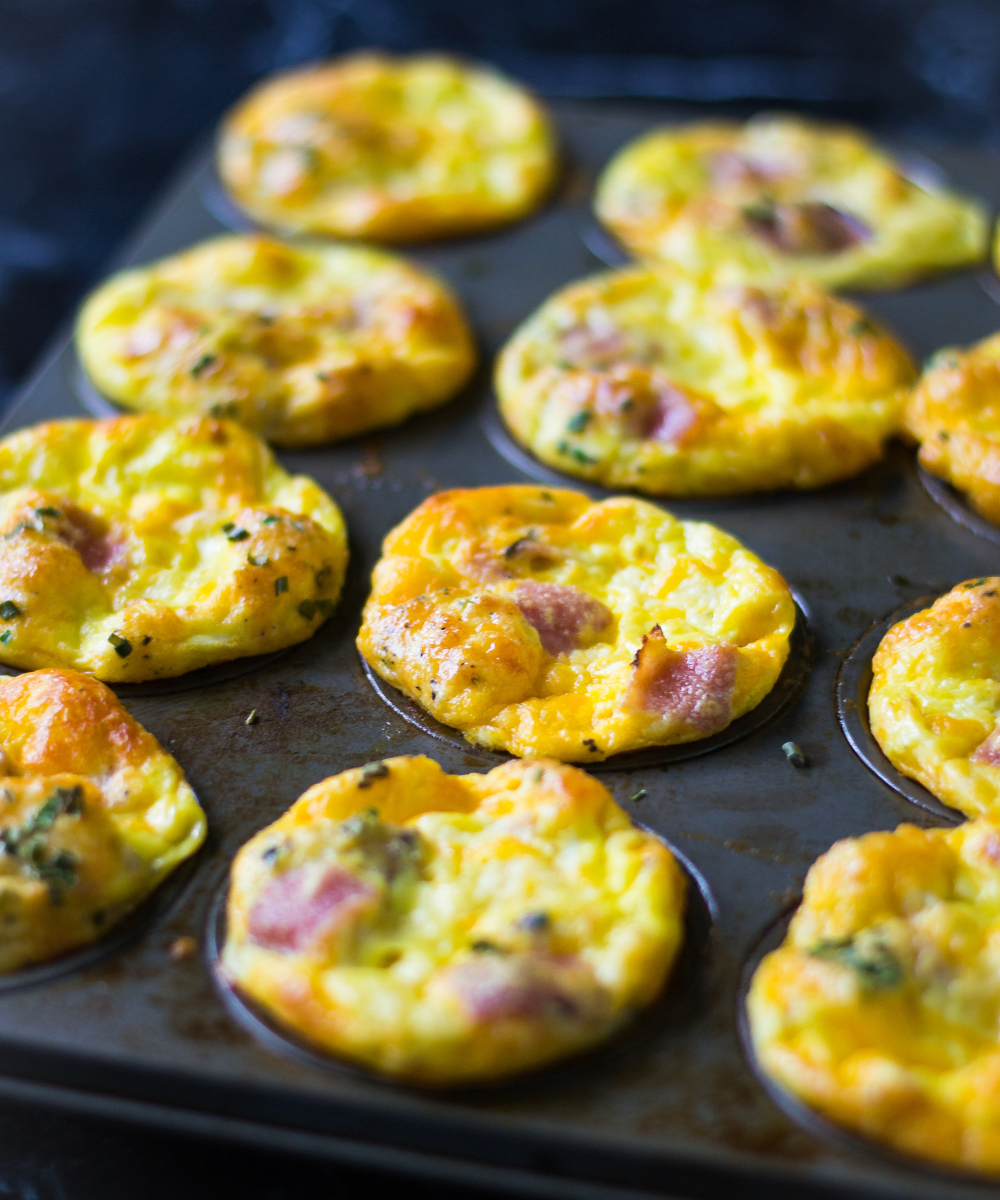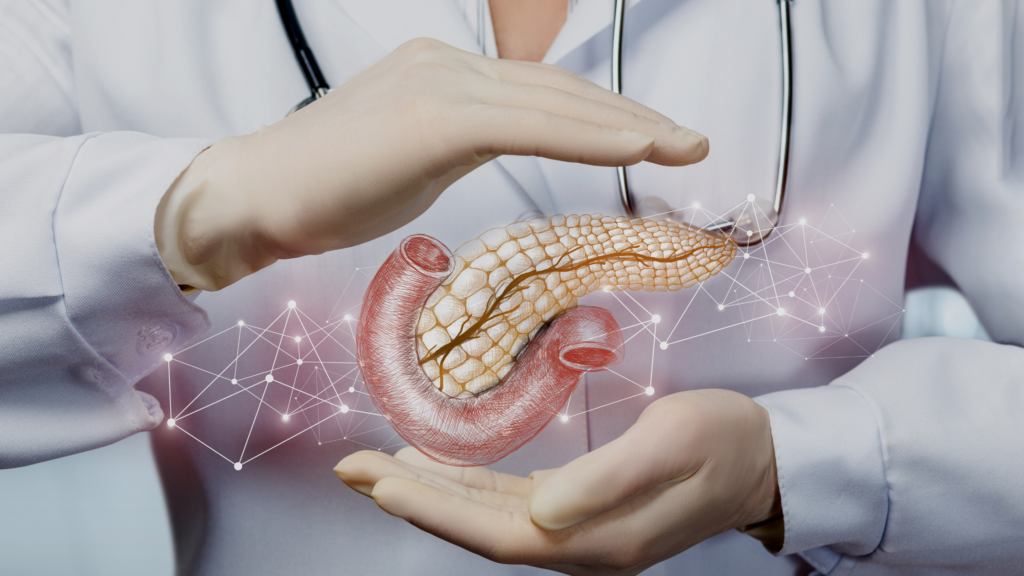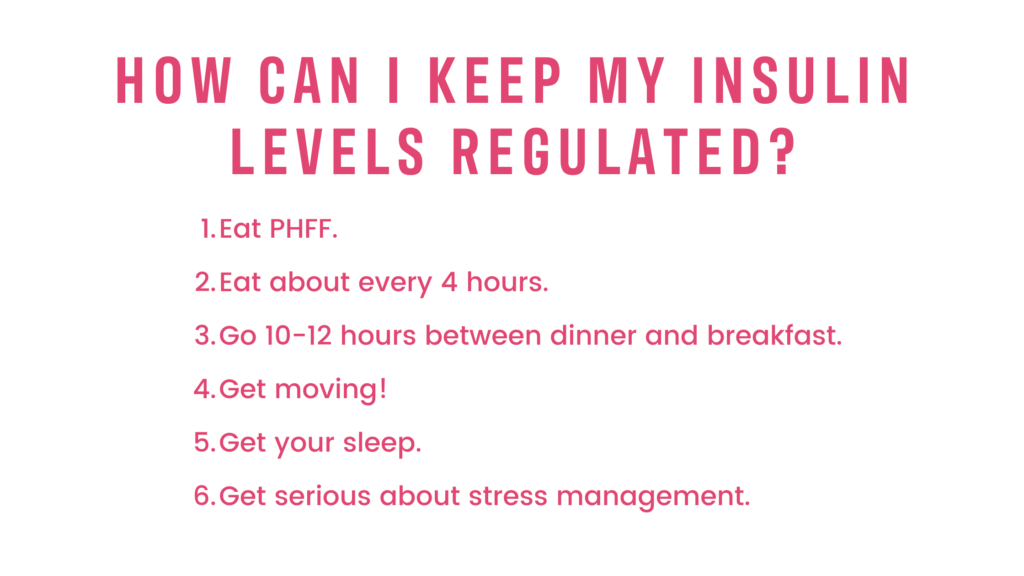
What does insulin do?
We hear terms like “insulin” and “insulin resistance” in mainstream health media a lot these days, and I think it’s honestly created some big-time confusion. Is insulin bad? Should we avoid spikes in insulin? Do we need insulin? What even is it?
Let’s take a step back and clear the mud:
Insulin is a hormone that our pancreas makes. The key function of insulin is to allow glucose from our bloodstream to enter our cells for energy. Without insulin acting as the key to the mini-doors in our cells allowing glucose to enter, we would not survive. Insulin is GOOD!
Whenever we eat foods with carbohydrates (like starchy carbs, sugar, fruits, dairy, beans & legumes, etc.), our body will break them down into single glucose units. They will eventually end up in our bloodstream to either be used for direct energy (like to fuel a workout or give us some brain power) or be stored for energy for later.
The glucose we eat cannot just be floating around in our blood all day long. Being in a state of high blood sugar would make us very tired, worsen our blood flow, and would eventually lead to other long-term complications. Good news – the body is very smart and responds to elevated blood sugar. This is where insulin comes in! It scoops up the extra glucose we don’t need right now to be stored in our muscles, liver, or fat tissues for later.

Does insulin cause weight gain?
Yes and no.
Insulin by nature is a storage hormone. It allows us to store extra glucose for later and when it’s out and about doing its job, the body is in what I like to consider “fat-storing mode”.
The body cannot be in a “fat-burning mode” when insulin is the star of the show. So, if you’re eating every 2-3 hours and/or eating excess starchy carbs and sugar, the body is constantly required to use insulin to keep your blood sugar levels within a healthy range.
How can you be in fat-burning mode instead? Eat more food, less often. This means eating about every four hours and making meals that are satisfying enough for you to do so. Not eating so frequently means the body can take a break from needing insulin all time.
You know that piece of advice we’ve heard forever: “eat every 2-3 hours to keep your metabolism revved”? Yea, that’s not good advice for the majority of us.
What you can also do is eat meals that prevent large blood sugar spikes. This will also give your body a break from needing a lot of insulin. How do you do this? Protein, healthy fat, and fiber need to be present on your plate (PHFF). All three of these food groups are excellent at buffering spikes in blood sugar. They also keep you fuller longer to help you eat less often throughout the day. It’s a win-win. You can read more about eating for balanced blood sugar here.
It also goes without saying that avoiding added sugars in our diet plays a huge role here as well. If we are frequently sipping on sweet coffee drinks or soda or snacking on carb-based snacks during the day, our body is going to need a lot more insulin….meaning our body can’t be in fat-burning mode as much (or ever).
Understand this: if you are a person who is eating well-balanced meals to keep you full for several hours and having sugar in moderation, insulin will function as it’s designed to! Weight gain would not be an issue because your body is able to go into fat-burning and fat-storing modes interchangeably.
The main reason you might run into issues with insulin is you are not consistently eating for blood sugar balance!
What is insulin resistance?
Well, too much of anything can be a bad thing, and the same goes for insulin. When we eat in a way that requires our bodies to constantly require this hormone (because we’re eating a lot of glucose sources like starchy carbs and sugar throughout the day), our body is going to grow tired of this high demand and ultimately be less effective at allowing glucose into our cells and out of the blood.
Insulin resistance can also be thought of as a disruption between the communication of insulin and our cells. High levels of inflammation coming from stress, high intakes of omega-6 fatty acids (like oils used for fried foods and fast food), lack of regular movement and lean muscle tissue, poor gut health, and more can affect how well insulin is able to function and manage our blood sugar levels.
When we’re talking about insulin resistance, the body still makes insulin. The problem is that, as I said, the insulin itself packs less of a punch and we need a lot more of it. Eventually, the body really sucks at making and using it, leading to conditions like prediabetes and type 2 diabetes.
Some signs of insulin resistance include:
- A fasting blood sugar > 100mg/dL
- An A1c lab value of 5.7-6.4%
- Gradual unexplained weight gain over the years
- Weight loss resistance or difficulty losing weight
- Frequent fatigue
- Frequent urination
- Extreme thirst/hunger
Your doctor would be the best person to talk to if you’re concerned about insulin resistance, prediabetes, or diabetes.
How can I keep my insulin levels regulated?
- Eat PHFF – protein, healthy fat, and fiber at your meals. Eating all three of these food groups is ideal for keeping blood sugar levels steady, meaning your body needs minimal insulin to get rid of extra sugar or glucose from your blood.
- Eat about every 4 hours or so. This gives your body enough time to use insulin after meals per usual, and then go away so the body can return to a fat-burning mode.
- Go 10-12 hours between dinner and breakfast. This is actually the best time for the body to take a break from needing insulin and go into a fat-burning mode during the night.
*This does not mean the longer you fast the better! Women in general do not benefit from fasting more than 14 hours a day. Our hormones are just not fans of it.
- Get moving! A walk after meals is proven to help bring blood sugar levels down and require less insulin.
- Get your sleep. 7-9 hours consistently is very helpful for supporting steady blood sugars.
- Get serious about stress management. High stress levels mean higher cortisol levels (the stress hormone), and this triggers the body to release stored glucose.
Our body essentially thinks we’re being chased by a bear and will need the glucose for energy, but the reality is that it’s just our co-worker Karen who is pissing us off (or something similar). The body doesn’t know the difference between perceived stress and actual physical threats. So anyway…..stress can raise our blood sugar and require insulin to keep it regulated. Make sure you’re incorporating daily practices to relieve your stress and keep your mindset in a good place.

Can you reverse insulin resistance?
Yes!
Insulin resistance is not a permanent state of health and can very much be reversed.
How do you do this? The very same lifestyle changes you would take to lower insulin levels I mentioned above.
Some final thoughts:
The conversation surrounding insulin is very similar to balancing blood sugar! And this makes sense because insulin is what tightly regulates are blood sugars 24/7. It’s actually really awesome that the body does this for us and we don’t have to think about it. So, with that being said, make sure you’re living a lifestyle that helps your body do this effectively!
If you’re ready to dive deep into balancing your blood sugar and regulating insulin levels for weight loss, feeling better, and preventing long-term disease, it’s time to join us for Metabolism Makeover. The secret benefit to having a healthy metabolism is having ROCKING blood sugars!
Stay healthy,
Coach Elle

